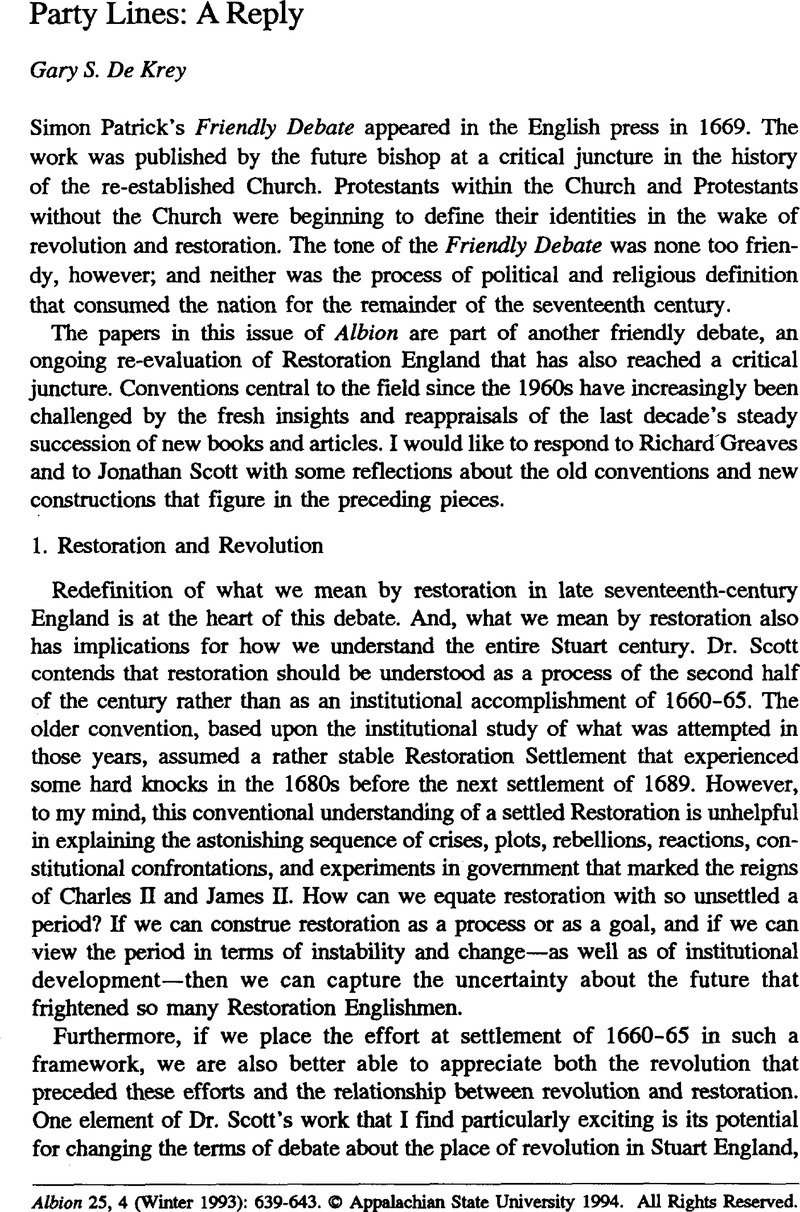
1 In addition to my articles cited in notes 5 and 47 of “The First Restoration Crisis,” supra, see: De Krey, Gary S., “The London Whigs and the Exclusion Crisis Reconsidered,” in The First Modern Society: Essays in English History in Honour of Lawrence Stone, ed. Beier, A. L., Cannadine, David, and Rosenheim, James M. (Cambridge, 1989), pp. 457–82Google Scholar, and idem, “London Radicals and Revolutionary Politics, 1675–1683,” in The Politics of Religion in Restoration England, ed. Tim Harris, Paul Seaward, and Mark Goldie (Oxford, 1990), pp. 133–62.
2 Most recently in Greaves, Richard L., Secrets of the Kingdom: British Radicals from the Popish Plot to the Revolution of 1688–89 (Stanford, Calif. 1992)Google Scholar.
3 Scott, Jonathan, “If This Isn't a Party, We're Not Having a Good Time,” supra, p. 632Google ScholarPubMed.
4 Scott, Jonathan, Algernon Sidney and the Restoration Crisis, 1677–1683 (Cambridge, 1991), p. 6CrossRefGoogle Scholar.
5 De Krey, Gary S., “Rethinking the Restoration: Dissenting Cases for Conscience, 1667–72,” forthcoming, The Historical JournalGoogle Scholar.
6 Scott, , “If This Isn't a Party,” p. 619Google Scholar; idem, Restoration Crisis, p. 47 (Scott's italics).
7 Harris, Tim, Politics under the Later Stuarts: Party Conflict In a Divided Society, 1660–1715 (London, 1993)Google Scholar.
8 I hope to substantiate these claims further in the book I am preparing about Restoration London.
9 See Condren, Conal, George Lawson's “Politica” and the English Revolution (Cambridge, 1989), pp. 193–95Google Scholar.
10 De Krey, , “London Whigs,” p. 481Google Scholar.
11 Scott, , Restoration Crisis, pp. 115, 162ff.Google Scholar